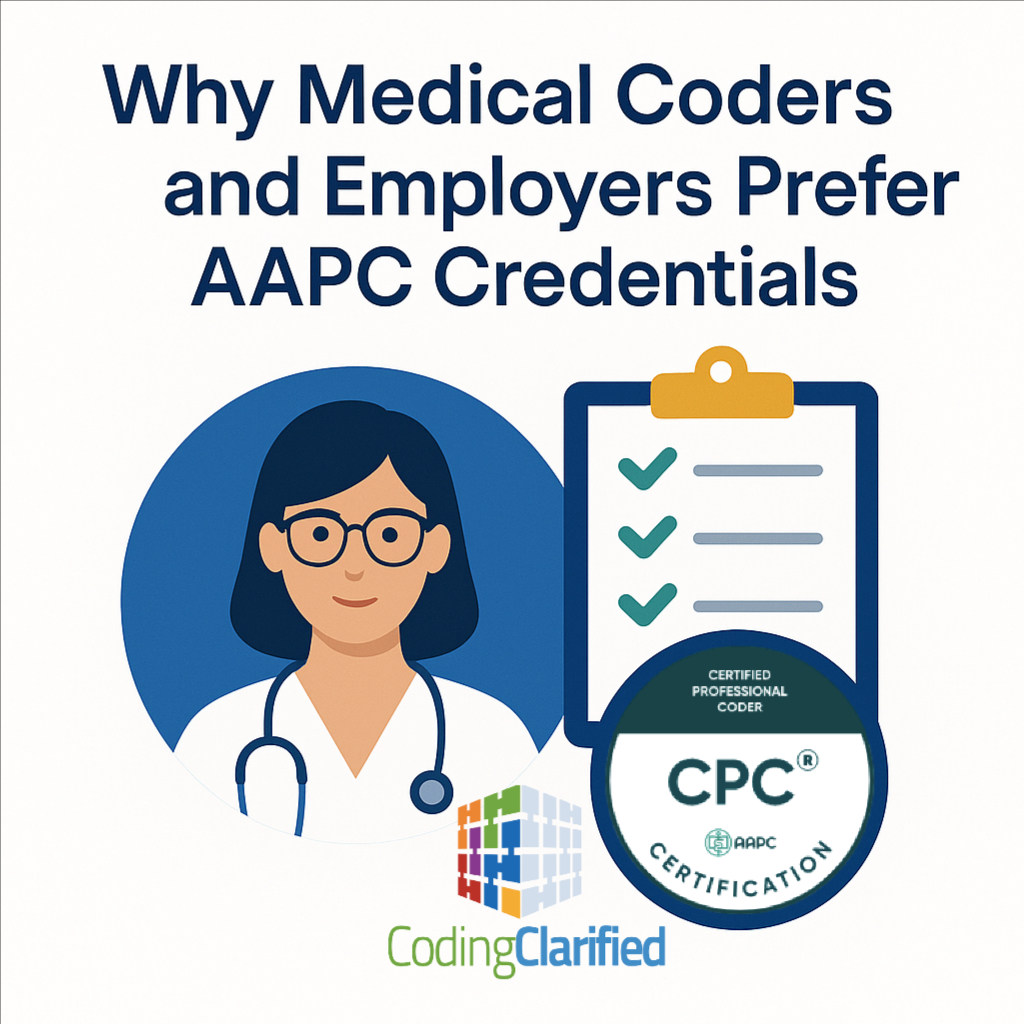The Gold Standard in the Medical Coding Profession
When it comes to establishing credibility in the field of medical coding, few credentials carry as much weight as those from the American Academy of Professional Coders (AAPC). For decades, AAPC certifications like CPC®, CPB®, COC®, CRC®, and CCS-P® have been recognized by healthcare employers across the nation as a mark of professional excellence, accuracy, and ethical standards.
AAPC Credentials Validate Real-World Expertise
AAPC exams are designed around real-world coding scenarios, testing not only textbook knowledge but also how coders apply guidelines in everyday situations. This ensures credentialed professionals can confidently interpret provider documentation, apply correct CPT®, ICD-10-CM, and HCPCS Level II codes, and maintain compliance with payer policies.
Employers appreciate that AAPC-certified coders can step into production environments with minimal supervision — a key advantage in today’s fast-paced revenue cycle settings.
Industry Recognition and Nationwide Standardization
AAPC certifications are recognized across all healthcare sectors — from hospitals and clinics to insurance carriers and consulting firms. Employers value the consistency that comes with an AAPC credential because it represents a nationally standardized level of competence.
Whether you’re coding for inpatient, outpatient, risk adjustment, or auditing roles, the AAPC name signals quality and reliability.
Commitment to Continuing Education
The healthcare industry changes constantly — from ICD-10-CM updates each October to annual CPT® revisions. AAPC requires all credential holders to complete Continuing Education Units (CEUs), ensuring coders remain up to date with the latest rules and payer guidelines. Employers see this as a built-in commitment to compliance and lifelong learning. Maintaining Your CPC With CEU
Comprehensive Career Support
AAPC doesn’t just certify coders; it helps them build careers. Through networking opportunities, local chapters, online forums, and job boards, members gain career visibility and access to thousands of employer postings. This ecosystem supports both entry-level and experienced coders alike.
For employers, hiring AAPC-certified professionals means connecting with candidates who are not only skilled but also engaged in a professional community dedicated to excellence.
Proven Return on Investment
Statistics consistently show that AAPC-certified coders earn higher salaries and experience greater job stability compared to non-certified peers. Employers benefit too — certified coders tend to make fewer claim errors, reduce denials, and improve reimbursement accuracy. That’s why many healthcare organizations specifically list AAPC credentials as preferred or required in their job postings. AAPC 2025 Salary Survey
Ethical and Professional Standards
Every AAPC member agrees to abide by the AAPC Code of Ethics that promotes accuracy, confidentiality, and compliance. This reassures employers that AAPC-certified coders operate with integrity and accountability — essential qualities in a field tied to patient care and reimbursement integrity.
For both coders and employers, AAPC credentials represent more than just a certification — they signify trust, expertise, and professionalism. Whether you’re entering the field or advancing your career, earning an AAPC credential is one of the most valuable steps you can take toward long-term success in medical coding.
Let Codig Clarified ‘clarify” medical coding. Learn Medical coding today!

